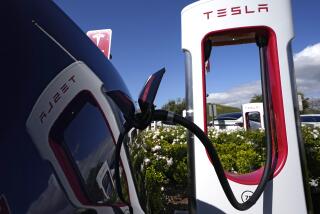The problem with soda taxes
When it comes to so-called sin taxes, tobacco is simple. Food and drink are complicated. Cigarettes cause terrible disease and have no positive side effects. Taxes on them clearly reduce smoking and contribute to public health. But healthy eating requires balancing both the quantity of calories and the quality of those calories — does the food also deliver protein, fiber, vitamins, minerals? As a result, efforts to tax junk foods or regulate dietary behavior are almost sure to have logical inconsistencies.
Measure H, a proposed tax on the city of El Monte’s ballot, is a typical example. Rather than carefully targeting high-calorie, low-nutrition drinks, it includes within its reach beverages that contain any amount of fruit juice concentrate. That’s an attempt, no doubt, to cover drinks other than soda that have calorie-adding sweeteners, but in practice it means that many commercial brands of plain fruit juice also would be taxed because they consist of reconstituted concentrate. It’s true that some fruit juices are very high in calories while delivering little nutrition, but this measure would also affect vitamin-packed juices, protein-filled drinks and such low-calorie beverages as coconut water. The City Council would be empowered to remove drinks from the list, but there are no guarantees that it would do so.
Measure H and a similar ballot proposal in Richmond don’t take nutrition into account; they don’t even take calories into account. All they consider is sugar, in any form and quantity. This means that some of the newer diet soda formulations that add just a bit of sugar to improve flavor — such as Dr. Pepper 10, with only 10 calories per cup — would be taxed. (Regular soda has about 100 calories per cup.) But regular apple juice, not from concentrate, with 12 times the calories and little nutritional value, would not.
Both measures would impose a business tax rather than a sales tax, so retailers would pay the penny-per-ounce fee and then decide whether or how to pass on the cost to customers. If Measure H were a sales tax, many customers might go to neighboring towns to stock up — a two-liter bottle of soda bought outside El Monte would cost 68 cents less — and while they were there, they might purchase the rest of their groceries as well. But El Monte retailers probably would avoid that scenario by spreading their increased costs over all or most of their products, meaning that grocery shoppers would pay more for their food whether or not they drink soda, and that, because the price of soda would remain about the same, consumption wouldn’t drop.
The backers of soda taxes see the El Monte and Richmond votes as a path toward statewide soda taxes, but these measures show why such levies are the wrong approach to fighting obesity.
More to Read
A cure for the common opinion
Get thought-provoking perspectives with our weekly newsletter.
You may occasionally receive promotional content from the Los Angeles Times.






